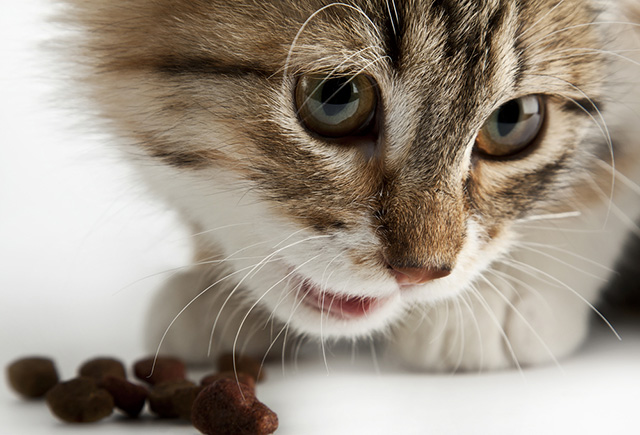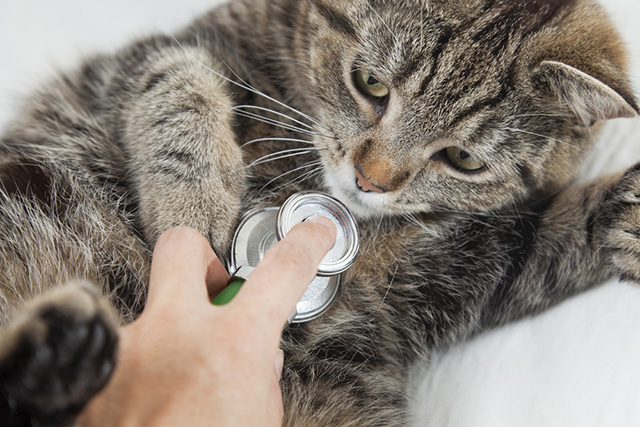Monitoring your cat’s health and well-being is important to ensure they live a long and happy life. Here are some common health problems to look out for.
Obesity in cats
Obesity is a big health risk to pets as it is to humans. An older cat is a less active cat, so adjustments to your pet’s diet to reduce caloric intake are imperative. This will relieve pressure on the joints as well as manage the risks of a range of diseases as well as making a massive difference to an overweight cat’s quality of life. A range of diets facilitating weight loss are available which modify ingredients with for example increased fibre, fatty acids and vitamins while decreasing sodium, protein and fat.

Feline diabetes
Diabetes is common especially in middle-aged or older cats. It is a disease in which your cat’s pancreas can no longer produce enough of the hormone insulin or where the body becomes insensitive to the cats own insulin.
Arthritis in cats
Arthritis severity can range from slight stiffness and lameness, difficulty in rising to inability to exercise without pain and ultimately debilitation. Keeping animals as comfortable as possible is vital.
You may detect this problem when he/she becomes less attentive about grooming and litter box habits. These signs may also indicate the slowing down of cognitive functions. Anti-inflammatory medication can help relieve the pain. Your veterinary surgeon will prescribe any necessary medication.
Intolerance to cold temperatures
Susceptibility to the cold is more likely as your cat ages. There can be a range of explanations. Providing an additional a heat source near where the cat sleeps and adequate shelter outdoors in inclement weather if the cat can’t easily access indoors
Teeth problems in cats
Dental problems can make eating painful but also may indicate long-standing viral problems, bacterial infection or rarely tumours. Cats are very sensitive to oral pain. Some hard diets may be helpful in encouraging chewing but are not appropriate if cats suffer significant oral pain. In a cooperative cat regular daily brushing and cleaning the teeth will help keep tartar and some forms of gum disease Êat bay.
Constipation in cats
Constipation may point to colon problems or hairballs. A diet that is easily digestible and rich in nutrients is essential and specific advice on suitable commercial diets should be sought from the practice.
Skin or coat changes in your cat
In ageing cats, the skin loses elasticity, making your pet more susceptible to injury while the fur can thin develop scurf or dandruff and become dry, dull or oily over time. This may occur as part of ageing but can also reflect underlying skin, metabolic or hormone problems. Veterinary advice should always be sought should such a change be noted. Regular grooming to prevent matting and improve coat lustre, and essential fatty acid supplements are highly beneficial Cats with recurrent infections
Regular infections and/or other health problems may indicate an impaired immune system. Take your cat in to your vet’s for a check-up. Your veterinary surgeon may suggest a test for Feline Leukaemia Virus and Feline Immunodeficiency Virus.

Increased thirst in cats
This can be a possible sign of diabetes, kidney failure or hyperthyroidism to name 3 common causes. Your veterinary surgeon will investigate with blood and urine tests to help determine the cause and provide appropriate advice on treatment.
Cat’s decreased sense of smell
A loss or decreased sense of small may be one cause that reduces your cat’s appetite. Warming moist food can help but always consult your veterinary surgeon should you notice an ongoing change in appetite- it is an important clue that all may not be well. Ask your veterinary surgeon about foods formulated for geriatric cats.
